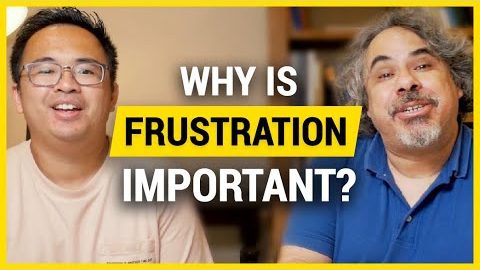What Are Signs Of Poor Executive Functioning?
There can be many clinical symptoms for poor executive functioning. However, out of all the years of working with people that have executive functioning deficits, it comes down to a common feeling: frustration. Sure common signs might include lack of focus, problems with transition from one task to another, or impulse control, but every single one of our students that have needed help with executive functioning have experienced frustration. Let’s take a common example of writing an essay or email. Individuals that executive functioning issues usually have a hard time visualizing the start and the ending of what they are writing. They have a hard time visualizing the middle as well.
This makes starting on the task extremely challenging. Their executive functioning brain doesn’t kick in, and they find themselves sitting there after an hour with only 2 sentences. Just like that their brain enters anxiety mode. What is wrong with me? Why can’t I write a freaking sentence? Poor executive functioning can eventually become very self-destructive and lonely.
Other Signs of Poor Executive Functioning
So besides frustration, what are some other signs of poor executive functioning? It can’t just be frustration because everyone at some point feels frustrated. Avoiding all of the clinical jargon as we are not therapists and psychologists, let’s pay attention to what happens before and after the frustration. The events that happen before or after are usually good signs of your executive functioning brain working fluidly. Before frustration sets in, were you working on a task where you had a lot of built in dread. If not dread, is it a task that just does not have your engagement? Individuals with executive functioning deficits often cannot visualize and track their game plan for tasks that they are either afraid to do or are not interested in doing. The inability to manage these fears or lack of engagement are clear signs that an individual will need help with executive functioning. How about what comes after the frustration? Are you able to catch yourself, recognize what is going on and adapt to a new plan of action? Or is your frustration petrifying? Our inability to control our emotions, pivot, and create a new plan for success are signs of poor executive functioning.
Everyone at Some Point has Poor Executive Functioning
Before we dive into some solutions to poor executive functioning, I want to address the duck in the room. Yes, I understand that the examples above are relatable to everyone at some point of their life. The truth is that our executive functioning brain is not always working at its best. We all have executive functioning issues. Improving these issues is a constant work in progress. Much like keeping our body and mind healthy, keeping our executive functioning brain working optimally takes work. Some individuals will have poor executive functioning to such a degree that consistent intervention will be needed, for some, it might just be recognizing they need help every once in a while. Whichever may be your case, know that there is nothing wrong with people that experience executive functioning deficits. It happens to all of us. We just want to recognize times when we do have poor executive functioning and put tools in place to help us.
How to Improve Poor Executive Functioning
Improving poor executive functioning is not as hard as you may think. Once you recognize that there really isn’t anything wrong with you and that not all hope is lost, hopefully the frustration with yourself will be less intense. Actually recognizing that you may have executive functioning deficits is step one in the right direction. After that, you want to work with someone that knows how to overcome executive functioning issues. This can be a parent, a friend, or an executive functioning coach. No matter who is helping you it is important to recognize that improving your executive functioning brain will take work, time, and patience. Our brain is a very complex organ and every individual is different. It will take time to understand what works and what doesn’t. Give yourself some leniency but make sure someone is there to keep you accountable. Improving poor executive functioning is hard, but it is something we all have to face at some point in our lives.
You Got This!
Want Support from an Executive Functions Coach?


